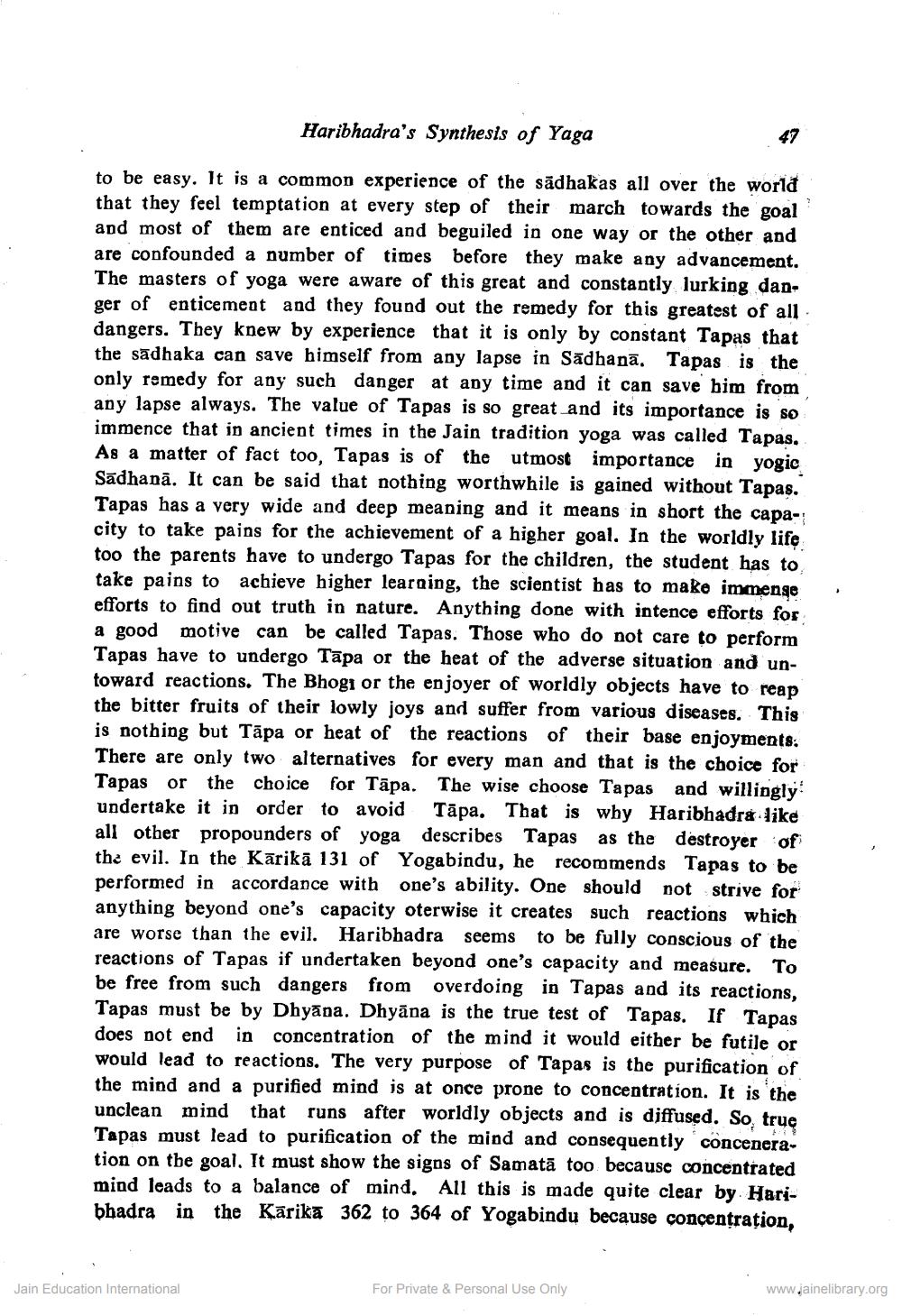________________
Haribhadra's Synthesis of Yaga
to be easy. It is a common experience of the sādhakas all over the world that they feel temptation at every step of their march towards the goal and most of them are enticed and beguiled in one way or the other and are confounded a number of times before they make any advancement. The masters of yoga were aware of this great and constantly lurking danger of enticement and they found out the remedy for this greatest of all dangers. They knew by experience that it is only by constant Tapas that the sādhaka can save himself from any lapse in Sadhanā. Tapas is the only remedy for any such danger at any time and it can save him from any lapse always. The value of Tapas is so great and its importance is so immence that in ancient times in the Jain tradition yoga was called Tapas. As a matter of fact too, Tapas is of the utmost importance in yogic Sadhanā. It can be said that nothing worthwhile is gained without Tapas. Tapas has a very wide and deep meaning and it means in short the capacity to take pains for the achievement of a higher goal. In the worldly life too the parents have to undergo Tapas for the children, the student has to take pains to achieve higher learning, the scientist has to make immenge efforts to find out truth in nature. Anything done with intence efforts for a good motive can be called Tapas. Those who do not care to perform Tapas have to undergo Tāpa or the heat of the adverse situation and untoward reactions. The Bhogi or the enjoyer of worldly objects have to reap the bitter fruits of their lowly joys and suffer from various diseases. This is nothing but Tāpa or heat of the reactions of their base enjoyments: There are only two alternatives for every man and that is the choice for Tapas or the choice for Tāpa. The wise choose Tapas and willingly undertake it in order to avoid Tāpa. That is why Haribhadra like all other propounders of yoga describes Tapas as the destroyer of the evil. In the Kārikā 131 of Yogabindu, he recommends Tapas to be performed in accordance with one's ability. One should not strive for anything beyond one's capacity oterwise it creates such reactions which are worse than the evil. Haribhadra seems to be fully conscious of the reactions of Tapas if undertaken beyond one's capacity and measure. To be free from such dangers from overdoing in Tapas and its reactions, Tapas must be by Dhyāna. Dhyāna is the true test of Tapas. If Tapas does not end in concentration of the mind it would either be futile or would lead to reactions. The very purpose of Tapas is the purification of the mind and a purified mind is at once prone to concentration. It is the unclean mind that runs after worldly objects and is diffused. So true Tapas must lead to purification of the mind and consequently conceneration on the goal. It must show the signs of Samatā too because concentrated mind leads to a balance of mind. All this is made quite clear by Haribhadra in the Karika 362 to 364 of Yogabindu because concentration,
For Private & Personal Use Only
www.ainelibrary.org
Jain Education International




